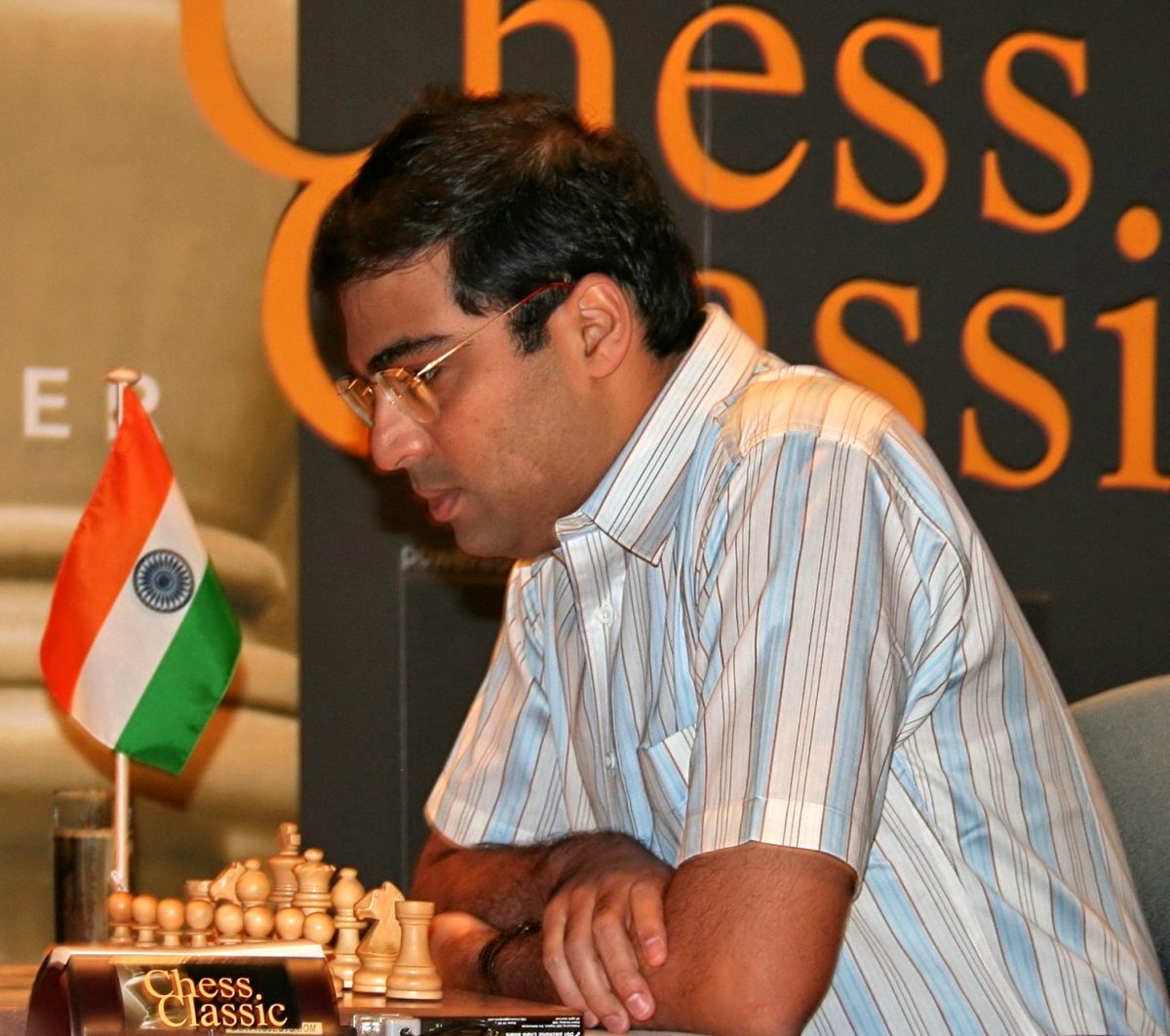Although Viswanathan Anand is one of the greatest chess players of all time, he has done so much more for the game than just playing it, especially for Indian chess. So how did he become the iconic symbol of Indian chess for fans all over the world?
Born in December of 1969, Anand first started learning chess at six years old. At the time, his native country India was not considered a chess powerhouse by any means. The country had no grandmasters, the highest title awarded to chess players by FIDE, the international governing body of chess. However, Anand displayed incredible talent at the game. In 1988, at the age of 18, he became a grandmaster and the first person in India to achieve this title.
Eventually, Anand participated in the 1991 Candidates Tournament, a prestigious chess tournament deciding who would play in the World Chess Championship. Although he failed to win the event, Anand performed exceptionally, and this tournament was a significant success.After many close calls throughout the years, Anand won an important tournament in 2007 to be the unofficial world champion; there was still debate about his legitimacy as he hadn’t played against what many considered the reigning champion, Vladimir Kramnik. However, in 2008, Anand defeated Kramnik in a match to become the fifteenth undisputed world chess champion.
Ultimately, Anand would lose the World Championship to rising prodigy Magnus Carlsen in 2013, but his chess career didn’t end there. In 2014, Anand won the Candidates Tournament to fight for the World Championship once more. Although he lost, Anand continues to be very active on the chess scene. For example, at the age of 48, he won the 2017 World Rapid Championship ahead of over one hundred other talented players, including Carlsen himself.
What makes Anand exceptional is not only the performance he displayed in his prime, but also the dominance he displays at his current age. Despite being 23 years older than the average grandmaster at 54 years of age, Anand can still go toe-to-toe with top-rated professionals such as Hikaru Nakamura, a five-time US Champion, whom he tied in a recent match in the German Bundesliga. According to said Kalwij and Jaegher, “on average chess performance peaks in grandmasters’ early-thirties and declines thereafter.” Anand’s incredible performance in recent years shows that it is possible to maintain a high level of chess past the average age of peak performance for grandmasters. By being a regular in the top ten chess players in the world for over two decades, Anand has shown incredible longevity and continues to serve as an inspiration to millions of chess players around the world.
Chess is currently surging in popularity in India, and Anand is a large reason why. Anand has become a major chess ambassador and strives to increase the game’s popularity. Numerous other talented Indian chess players have followed in the legend’s footsteps and have represented India’s chess at the top level. Such players include Arjun Erigaisi, Rameshbabu Praggnanandhaa, Vidit Gujrathi, and Gukesh Dommaraju, all currently in the World’s Top 25 chess players. Currently, the latter three are currently competing in the 2024 Candidates Tournament which will determine who gets to play in the World Championship against the reigning champion, Ding Liren.
Anand has also played a direct role in the rise of young stars such as Rameshbabu Praggnanandhaa and Gukesh Dommaraju, serving as a mentor and inspiration. Anand’s example and advice has undoubtedly galvanized players: Rameshbabu Praggnanandhaa, who is world #11 in the world at 18 years of age and has defeated Magnus Carlsen, former World Champion and current world #1, calls Anand a “huge inspiration”; Gukesh Dommaraju, whom Anand mentored, is currently world #10 at 17 years of age and has also defeated Magnus Carlsen.
In conclusion, Anand has blazed a trail in Indian chess by becoming the first grandmaster in a country with eighty-five now. Few can compare to the longevity and quality exemplified by Anand in his long and ongoing chess career, and few will leave behind such an impactful legacy. Anand has significantly influenced the next generation of Indian chess stars who will hopefully follow and expand the path that he pioneered.














































































































































